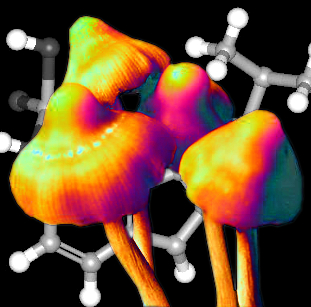Local magic mushrooms sequenced
 Australia's magic mushrooms could help breed tomorrow's “designer ‘shrooms”.
Australia's magic mushrooms could help breed tomorrow's “designer ‘shrooms”.
Australian researchers have discovered that the magic mushroom population in Australia boasts greater genetic diversity compared to commercially available varieties globally.
This diversity, they argue, could be leveraged to design new variants for potential mental health treatments.
In a groundbreaking study, scientists sequenced the genes of 38 Australian magic mushroom types and 86 commercially available strains.
Results revealed that while Australian mushrooms exhibited substantial genetic diversity, the commercially-bred counterparts lacked diversity due to decades of selective breeding.
Importantly, the Australian mushrooms demonstrated genetic variations linked to the production of psilocybin, a psychedelic substance with potential mental health applications.
This discovery implies the possibility of using Australian magic mushrooms to comprehend and control psilocybin production in newly cultivated varieties.
The study, published in Current Biology on December 4, focused on accumulating genome data for numerous ‘magic mushroom’ isolates and cultivars to understand the impact of domestication and cultivation on their genetic makeup.
Commercial cultivars, specifically Psilocybe cubensis, were found to lack genetic diversity due to human-driven domestication, while a naturalised Australian population retained significant diversity, including unique gene variants governing psilocybin production.
Alistair McTaggart of The University of Queensland noted the surprising homogeneity of some commercial cultivars, suggesting intentional or unintentional reduction of diversity over the last half-century.
Despite limited financial support, the research was facilitated by the collaboration of an underground community interested in magic mushrooms.
Over 100 varieties of magic mushrooms were sequenced and assembled, including 38 from Australia and 86 commercially available cultivars.
The team's analysis indicated that Australian mushrooms, having bounced back in population size after their introduction, maintained genetic diversity.
In contrast, commercial cultivars exhibited a lack of diversity across their genomes. The unique gene variants found in Australian mushrooms may impact the synthesis of psilocybin and related compounds.
The data generated on mating compatibility and genetic diversity controlling psilocybin production is expected to propel the development of “designer ‘shrooms”.
McTaggart says their startup, Funky Fungus, is already translating these findings to create designer cultivars.
These advancements could have implications for using psilocybin in natural drug development, potentially benefiting mental health disorders.
“Magic mushrooms are the cheapest source of psilocybin and may fill a niche in natural drug development,” he said.
“There is yet more to understand about how magic mushrooms produce other compounds that may impact a psilocybin experience, and this will be an exciting area of research to watch unfold.”








 Print
Print